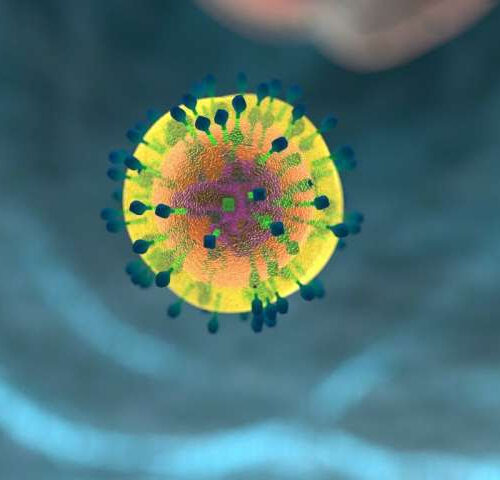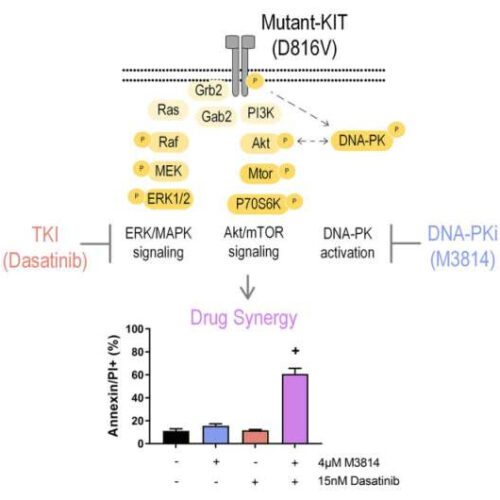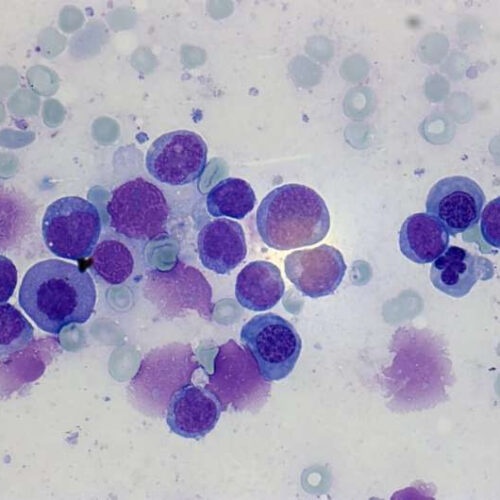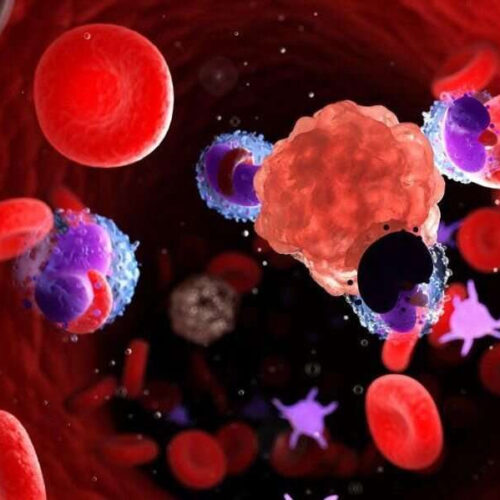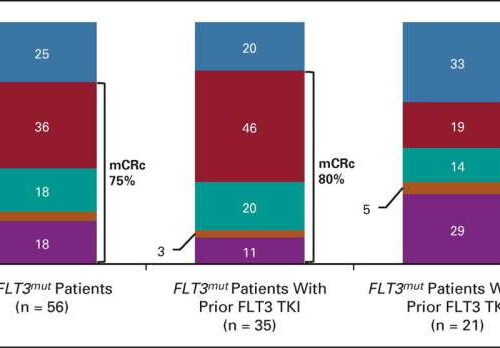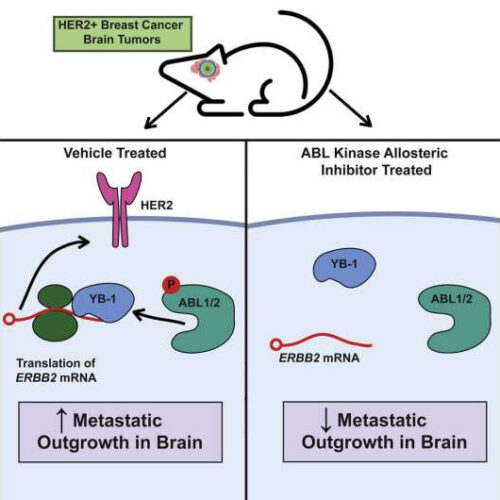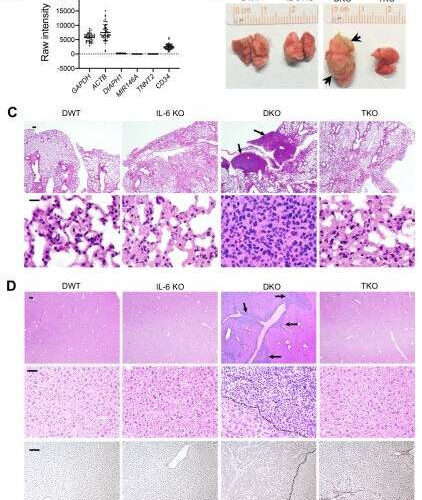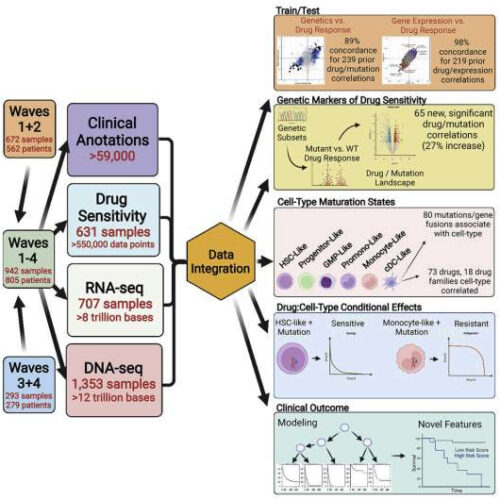by University College London Credit: Pixabay/CC0 Public Domain Three young patients with relapsed T-cell leukemia have now been treated with base-edited T-cells, as part of a “bench-to-bedside” collaboration between University College London (UCL) and Great Ormond Street Hospital for Children (GOSH). The data from the NHS clinical trial, published in The New England Journal of Medicine, shows...
Tag: <span>Leukemia</span>
Seeking leukemia’s Achilles heel
by American Society for Biochemistry and Molecular Biology Graphical abstract. Credit: Molecular & Cellular Proteomics (2023). DOI: 10.1016/j.mcpro.2023.100503 A team of researchers has discovered a potential therapeutic that can synergize with existing drugs to more effectively kill certain leukemia cells. The authors published their results in Molecular & Cellular Proteomics. Acute myeloid leukemia is a cancer of developing immune cells. It can manifest...
How a leukemia hijacks the genes needed by blood stem cells
by Gina Mantica, Children’s Hospital Boston Lynn Aureli hopes to inspire others in her new position as an oncology nurse at Dana-Farber Cancer Institute. Credit: Michael Goderre, Boston Children’s Hospital As a child, Lynn Aureli didn’t know that a particular genetic change contributed to her acute myeloid leukemia (AML)—an alteration that eventually would help explain...
New insights into the genetic basis of leukemia
by Kiel University In AML, an early precursor of the so-called myeloid cells degenerates; these so-called blasts (in purple, 63x magnification) subsequently multiply uncontrollably. Credit: Dr. med. Lars Fransecky, UKSH Acute myeloid leukemia (AML) is a malignant disease of the hematopoietic system that originates from immature precursors of red blood cells, platelets and part of...
Progression-free survival increased with zanubrutinib in leukemia
by Elana Gotkine HealthDay Reporter Progression-free survival is significantly longer with zanubrutinib than ibrutinib among patients with relapsed or refractory chronic lymphocytic leukemia (CLL) or small lymphocytic lymphoma (SLL), according to a study published online Dec. 13 in the New England Journal of Medicine. Jennifer R. Brown, M.D., Ph.D., from the Dana-Farber Cancer Institute in Boston,...
Novel Co-Admin of CAR T Cells Achieves 99% Remission in Leukemia
Roxanne Nelson, RN, BSN November 08, 2022 A novel approach in which two products were co-administered achieved a 99% complete response rate in children with relapsed or treatment-resistant B-cell acute lymphoblastic leukemia (B-ALL). In this trial, the largest study to date of a CAR T-cell therapy for such patients, the researchers co-administered two CAR T-cell therapies, one targeting...
Improving drug therapy for relapsed leukemia
by Haleigh Ehmsen, Northwestern University Response rates in all FLT3mut patients treated at any dose (n = 56) and in those who did (n = 35) or did not (n = 21) receive prior treatment with a FLT3 TKI. mCRc was defined as CR + CRi + CRp per criteria used in the ADMIRAL study. CR, complete...
Leukemia drug shows potential against metastatic HER2-positive breast cancer
by Sarah Avery, Duke University Graphical abstract. Credit: Cell Reports (2022). DOI: 10.1016/j.celrep.2022.111268 In animal studies led by researchers at Duke Cancer Institute, a drug approved to treat leukemia successfully disrupted the ability of HER2-positive breast cancer tumors from colonizing the brain. The finding, appearing online Aug. 30 in the journal Cell Reports, provides evidence for human trials and...
Inflammatory signaling linked to leukemia progression
by Kevin McCullough, Northwestern University Loss of IL-6 rescues multi-organ leukemia infiltrations in DKO mice. (A) Microarray gene expression data of bone marrow CD34+ cells from 47 MDS patients. Housekeeping genes GAPDH and ACTB were plotted to demonstrate the modest raw intensity without normalization. TNNT2 and CD34 were plotted as negative and positive controls, respectively. Data...
A better roadmap for beating deadly leukemia
by Joe Rojas-Burke, Oregon Health & Science University Graphical abstract. Credit: Cancer Cell (2022). DOI: 10.1016/j.ccell.2022.07.002 Acute myeloid leukemia, or AML, is the most common acute blood cancer in adults—and one of the most difficult to treat. Scientists at Oregon Health & Science University have discovered a potential new target for stopping it: a gene that, when active,...

